
Cologne: The Heartbeat of the Rhineland
Cologne, located on the banks of the River Rhine, is a city that perfectly blends history, culture, and modernity. Known for its impressive Gothic architecture, the city's skyline is dominated by the magnificent Cologne Cathedral, a UNESCO World Heritage Site. This towering masterpiece took over 600 years to complete and offers breathtaking views of the city from its viewing platform. Cologne is also famous for its vibrant cultural scene. The city is home to over 30 museums and hundreds of galleries, showcasing everything from Roman artifacts to contemporary art. The Museum Ludwig, renowned for its extensive collection of modern art, and the Romano-Germanic Museum, which houses Roman antiquities, are must-visits. The city's charm extends beyond its historical sights. Cologne is known for its lively festivals, most notably the Cologne Carnival, a joyful and colorful event that transforms the city into a giant street party. The Christmas markets, held in various squares around the city, are also a magical experience, offering festive treats and handmade crafts. For food lovers, Cologne offers a delightful culinary scene. Traditional Kölsch beer and hearty Rhineland dishes can be enjoyed in cozy pubs and restaurants. Don’t miss a chance to stroll along the Rhine promenade, where you can find numerous cafes and bars with stunning river views. Cologne is a city where the past and present coexist harmoniously, making it an exciting destination for tourists. Its welcoming atmosphere, rich history, and diverse attractions ensure that every visitor finds something to love.
Local tips in Cologne
- Visit the Cologne Cathedral early in the morning to avoid crowds and enjoy a peaceful experience.
- Purchase a KölnCard for unlimited public transport and discounts at museums and other attractions.
- Try to plan your visit during the Cologne Carnival for an unforgettable experience.
- Head to the Belgian Quarter for trendy cafes, boutiques, and a local vibe.
- Take a scenic boat tour on the Rhine to see the city from a different perspective.
- Explore the city's numerous Christmas markets if visiting during the winter season.
- Taste the local Kölsch beer at a traditional Brauhaus.
Neighbourhoods in Cologne
Cologne: The Heartbeat of the Rhineland
Cologne, located on the banks of the River Rhine, is a city that perfectly blends history, culture, and modernity. Known for its impressive Gothic architecture, the city's skyline is dominated by the magnificent Cologne Cathedral, a UNESCO World Heritage Site. This towering masterpiece took over 600 years to complete and offers breathtaking views of the city from its viewing platform. Cologne is also famous for its vibrant cultural scene. The city is home to over 30 museums and hundreds of galleries, showcasing everything from Roman artifacts to contemporary art. The Museum Ludwig, renowned for its extensive collection of modern art, and the Romano-Germanic Museum, which houses Roman antiquities, are must-visits. The city's charm extends beyond its historical sights. Cologne is known for its lively festivals, most notably the Cologne Carnival, a joyful and colorful event that transforms the city into a giant street party. The Christmas markets, held in various squares around the city, are also a magical experience, offering festive treats and handmade crafts. For food lovers, Cologne offers a delightful culinary scene. Traditional Kölsch beer and hearty Rhineland dishes can be enjoyed in cozy pubs and restaurants. Don’t miss a chance to stroll along the Rhine promenade, where you can find numerous cafes and bars with stunning river views. Cologne is a city where the past and present coexist harmoniously, making it an exciting destination for tourists. Its welcoming atmosphere, rich history, and diverse attractions ensure that every visitor finds something to love.
When is the best time to go to Cologne?
Iconic landmarks you can’t miss
Cologne Cathedral
Experience the awe-inspiring grandeur of Cologne Cathedral, a UNESCO World Heritage site, where Gothic architecture, priceless relics, and stunning stained glass converge in the heart of Cologne.

Old Market
Experience the vibrant heart of Cologne at Alter Markt, a historic square brimming with culture, cuisine, and captivating stories from Roman times to the present day.
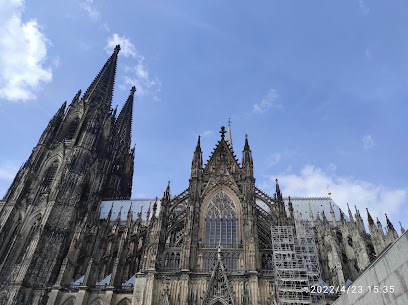
Museum Ludwig
Explore masterpieces of modern art at Museum Ludwig in Cologne, home to iconic works by Picasso, Warhol, Dalí, and more, offering a vibrant journey through 20th and 21st-century art movements.
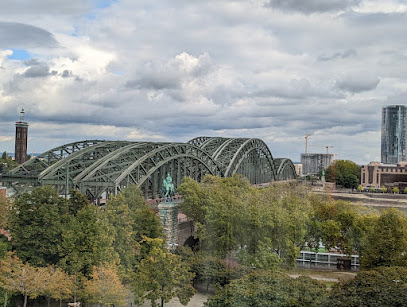
Rheingarten
Experience Cologne's charm at Rheingarten: a scenic riverside park offering stunning views, tranquil pathways, and a vibrant social atmosphere in the heart of the Old Town.
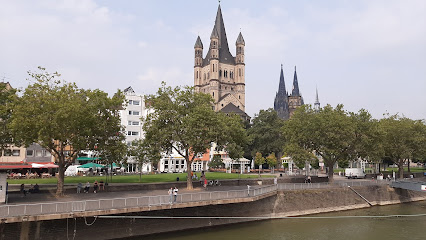
Heumarkt
Experience Cologne's vibrant heart at Heumarkt, a historic square offering a blend of culture, cuisine, and festive events, all within easy reach of iconic landmarks.
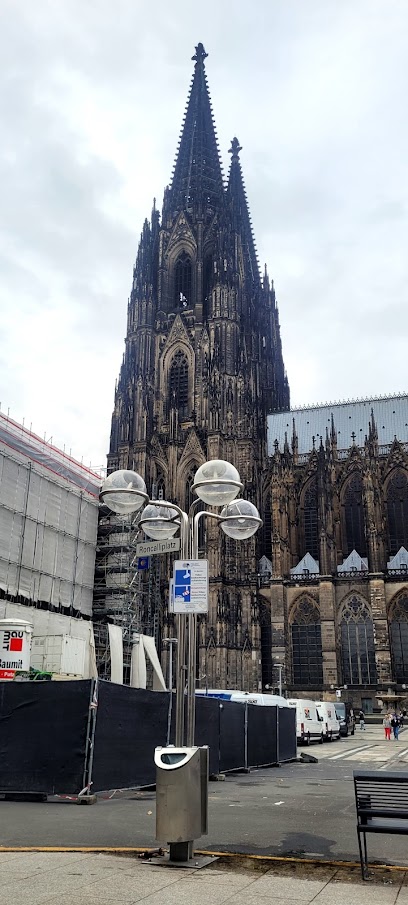
Cologne Triangle
Experience Cologne from above at the Triangle observation deck, offering panoramic views of the city's iconic landmarks and the Rhine River, a modern architectural marvel.
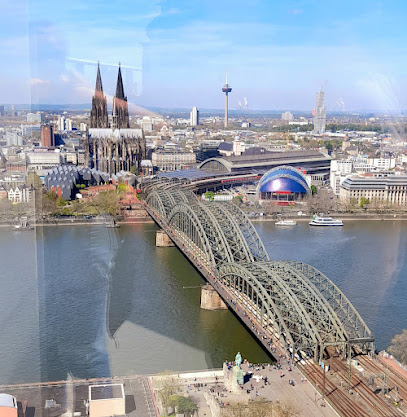
Wallraf-Richartz-Museum & Fondation Corboud
Discover seven centuries of European art at the Wallraf-Richartz-Museum & Fondation Corboud in Cologne, from medieval masterpieces to Impressionist icons, all in the heart of the city.
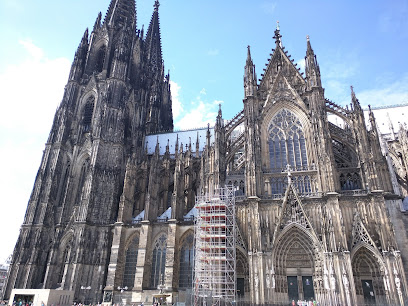
Rheinboulevard
Experience breathtaking views of Cologne's skyline and immerse yourself in the vibrant atmosphere of the Rheinboulevard, a modern promenade blending history and recreation along the Rhine.
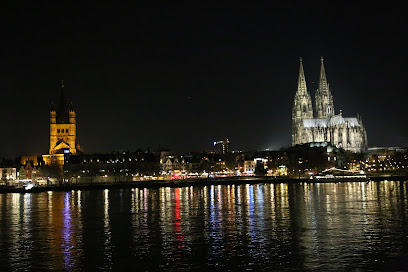
Fish Market
Discover Cologne's Fischmarkt: A historic gem on the Rhine, offering colorful architecture, charming restaurants, and a glimpse into the city's vibrant past, perfect for history enthusiasts and food lovers.
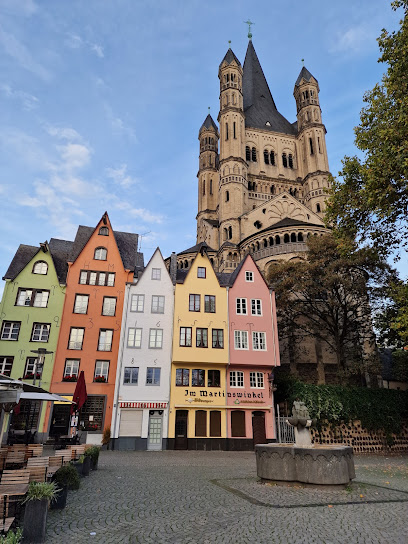
Great St. Martin Church
Discover Cologne's resilient spirit at Great St. Martin Church, a Romanesque masterpiece rising from Roman ruins, offering a serene escape in the heart of the Old Town.
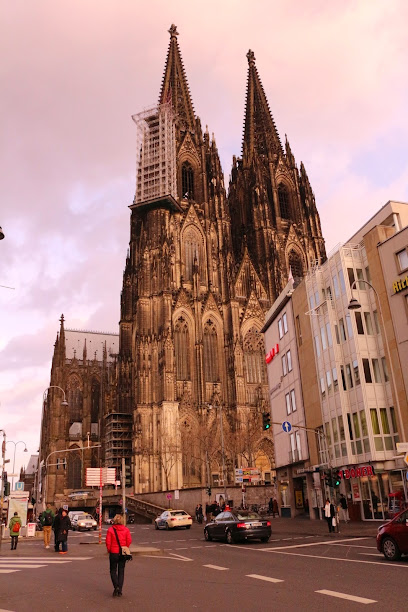
Kolumba
Discover a unique art experience in Cologne's Kolumba Museum, where ancient ruins meet modern design, showcasing art from antiquity to today in a space for contemplation.

Fort X
Explore Fort X in Cologne: A historic Prussian fortress transformed into a vibrant park with a stunning rose garden, offering a unique blend of history, nature, and recreation.
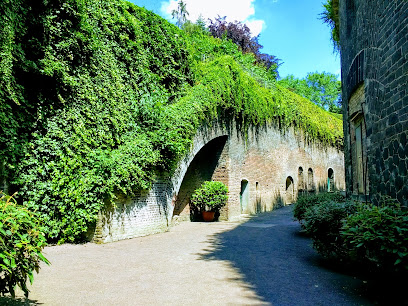
Freewalk Cologne UG
Explore Cologne's medieval past at the Eigelsteintorburg, a beautifully preserved city gate offering a glimpse into the city's rich history and vibrant Eigelstein district.
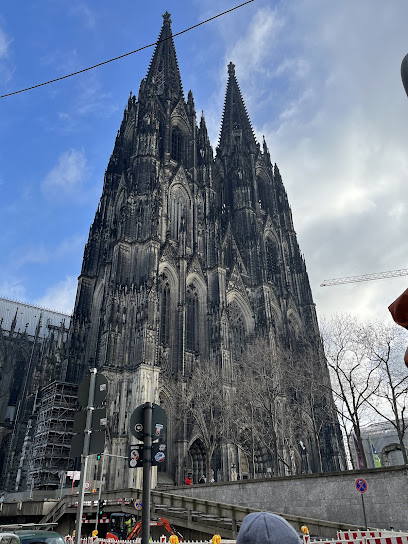
St. Gereon
Explore St. Gereon Basilica in Cologne, a mesmerizing blend of Romanesque, Gothic, and ancient Roman architecture, steeped in legend and religious history, showcasing its decagonal dome.
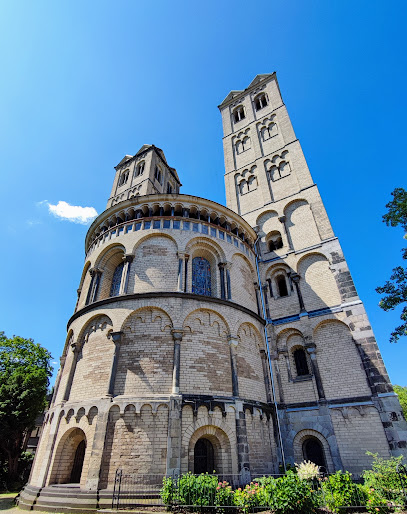
Sculpture Park Cologne
Discover contemporary sculpture in a tranquil green setting at Cologne's Sculpture Park, a unique open-air museum offering thought-provoking art and a peaceful escape in the heart of the city.
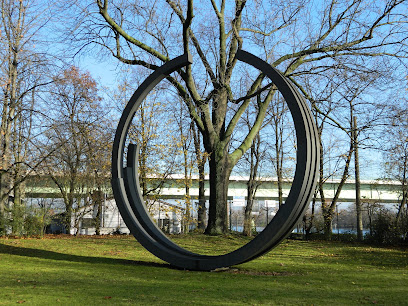
Unmissable attractions to see
Cologne Cathedral
Discover the stunning Gothic architecture and rich history of Cologne Cathedral, a UNESCO World Heritage site in the heart of Cologne, Germany.
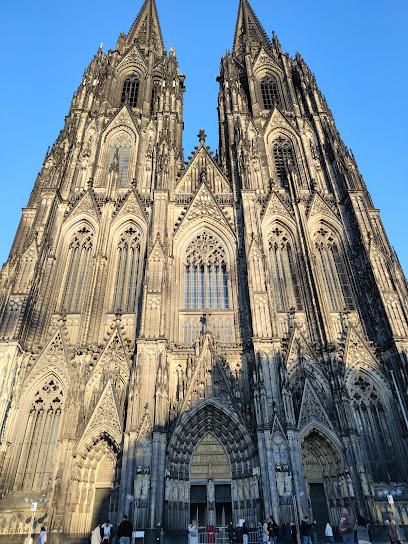
Lindt Chocolate Museum
Discover the enchanting world of chocolate at the Lindt Chocolate Museum in Cologne, where history, culture, and delectable treats come together.
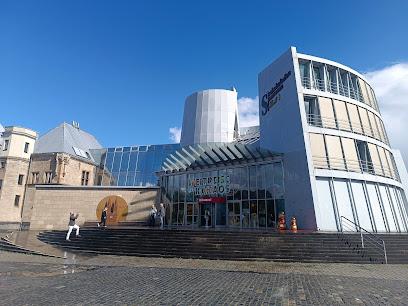
Lanxess Arena
Discover the heart of Cologne's entertainment scene at Lanxess Arena, where unforgettable concerts and thrilling sports events await.
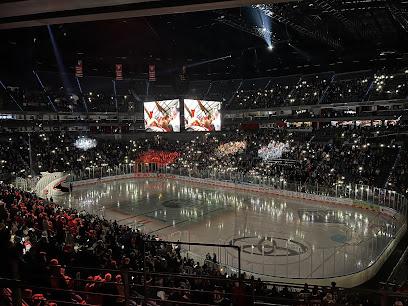
Cologne Zoological Garden
Discover the enchanting Cologne Zoological Garden, a family-friendly destination with diverse wildlife and educational experiences nestled in the heart of Cologne.
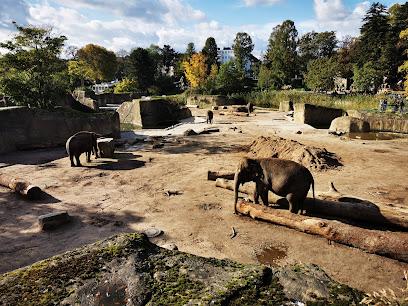
Cologne Fair
Discover Cologne Fair, a premier exhibition and trade center in Germany, where culture, innovation, and business converge in a vibrant atmosphere.
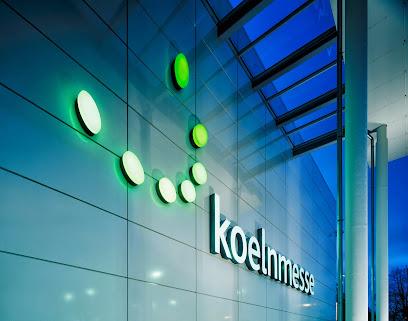
Schloss Drachenburg
Discover the breathtaking beauty and rich history of Schloss Drachenburg, a fairy-tale castle nestled in the hills of Königswinter, Germany.
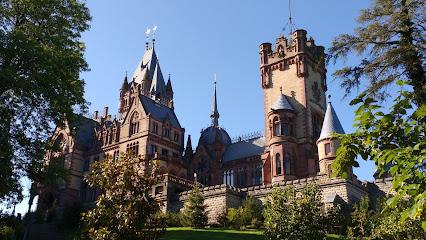
BORUSSIA-PARK
Discover the excitement of Borussia-Park: A modern stadium that brings football to life in Mönchengladbach, Germany.
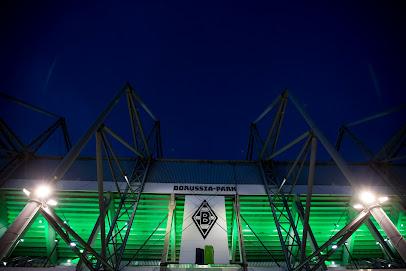
Freizeitpark Rheinaue
Explore Freizeitpark Rheinaue, Bonn's stunning state park, perfect for outdoor activities, family fun, and serene nature experiences.
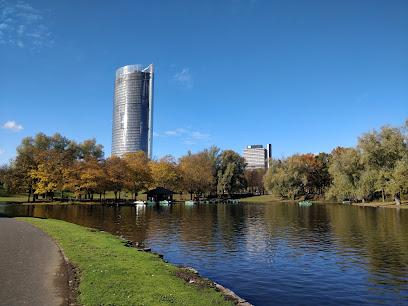
House of the History of the Federal Republic of Germany
Discover the rich history of Germany from 1949 to the present at the House of the History of the Federal Republic, a captivating museum in Bonn.
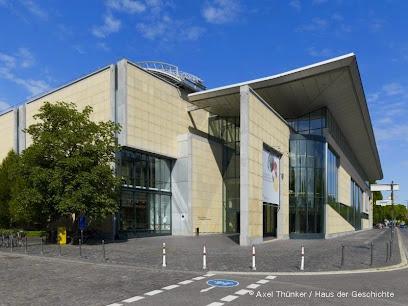
Cinedom
Discover the immersive cinematic experience at Cinedom in Cologne, where modern films meet cutting-edge technology.
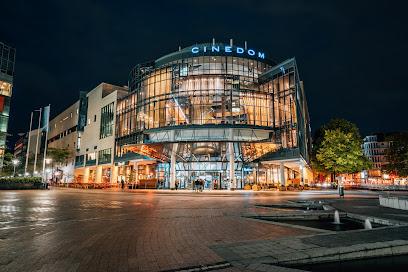
Aquazoo Löbbecke Museum Dusseldorf
Explore the Aquazoo Löbbecke Museum in Düsseldorf, where aquatic wonders meet educational experiences in a vibrant setting.
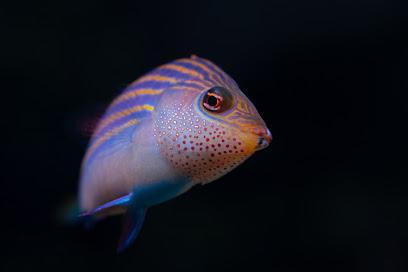
Burg Castle
Explore the historical marvel of Burg Castle in Solingen, where medieval architecture meets breathtaking natural beauty.
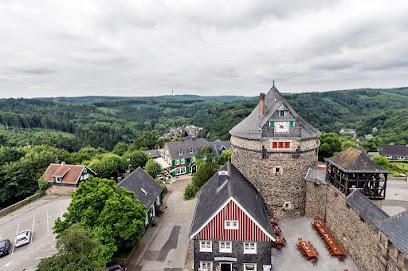
Drachenfels Railway
Discover the enchanting Drachenfels Railway in Königswinter, where history meets breathtaking views of the Rhine and surrounding landscapes.
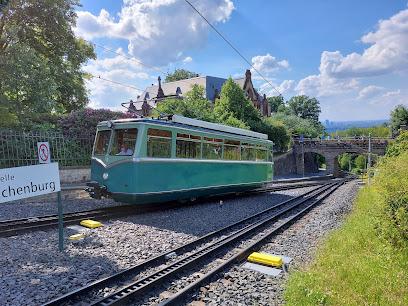
Classic Remise Düsseldorf
Explore the world of vintage and luxury automobiles at Classic Remise Düsseldorf, a unique destination for car enthusiasts and tourists alike.
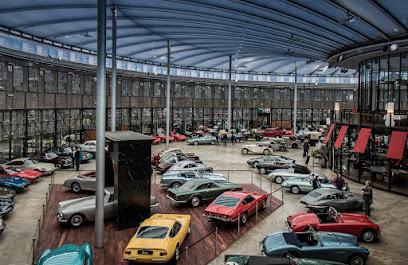
Schloss Benrath
Discover the enchanting Schloss Benrath, a stunning Baroque palace and park in Düsseldorf, perfect for history lovers and nature enthusiasts alike.
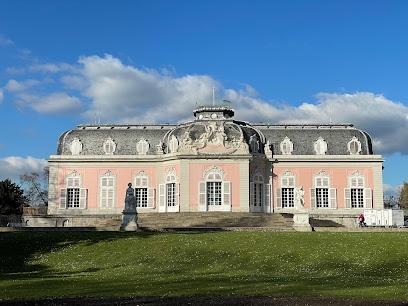
Essential places to dine
Gilden im Zims “Heimat kölscher Helden”
Discover authentic German flavors at Gilden im Zims - where tradition meets vibrant Kölsch culture in the heart of Cologne.
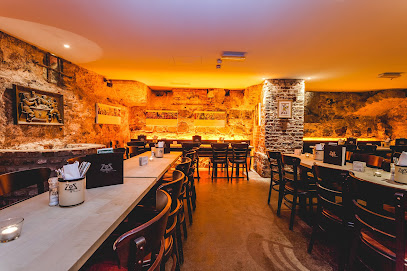
Funkhaus Cafe-Bar-Restaurant
Discover Funkhaus Cafe-Bar-Restaurant: A culinary gem in Cologne offering delicious food, refreshing drinks, and an inviting atmosphere.
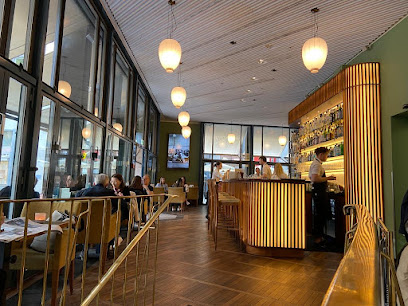
Gaststätte Lommerzheim
Experience authentic German cuisine and craft beers at Gaststätte Lommerzheim in Cologne - a must-visit culinary gem.
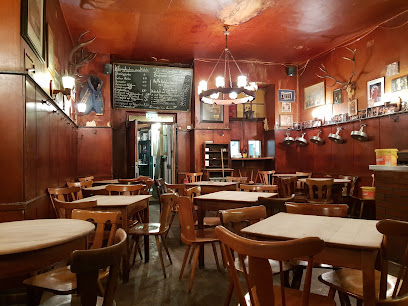
Bei Oma Kleinmann
Discover Bei Oma Kleinmann: A charming pub in Cologne offering authentic German cuisine and an extensive selection of local beers in a cozy atmosphere.
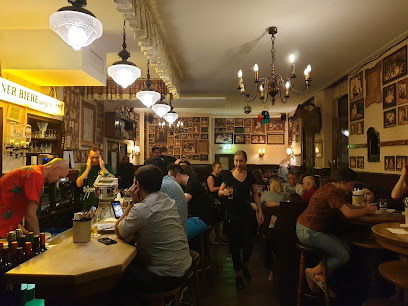
L'Osteria
Discover authentic Italian flavors at L'Osteria in Cologne's Innenstadt—where every meal is a celebration of taste and tradition.
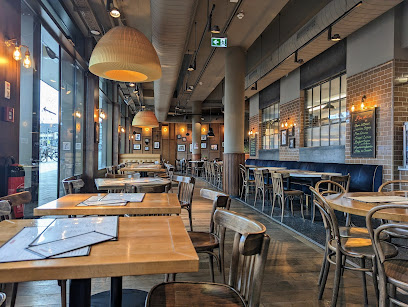
Servus Colonia Alpina
Discover the heart of Bavarian cuisine at Servus Colonia Alpina in Cologne – where tradition meets taste in every dish.
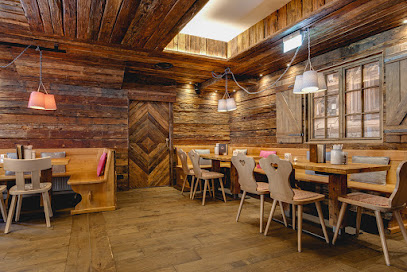
The Small Steakhouse
Experience the finest steaks in Cologne at The Small Steakhouse – where flavor meets ambiance in every bite.
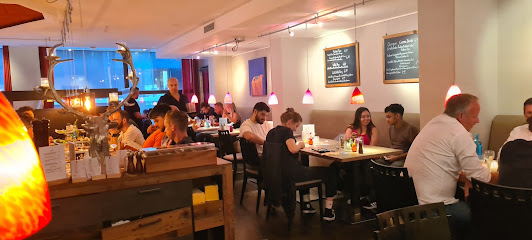
Mongo's Restaurant Köln - Deutz
Experience the thrill of creating your own dish at Mongo's Restaurant Köln - Deutz, where Asian flavors meet Mongolian barbecue.
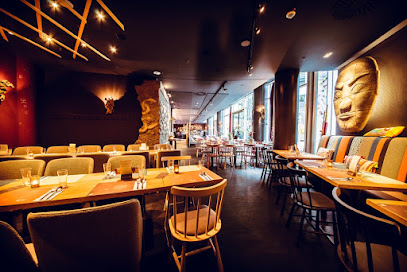
Haxenhaus
Discover authentic German cuisine at Haxenhaus in Cologne – where traditional flavors meet vibrant atmosphere along the Rhine River.

Max Stark
Experience authentic German cuisine at Max Stark in Cologne's Innenstadt - where tradition meets modern gastropub flair.
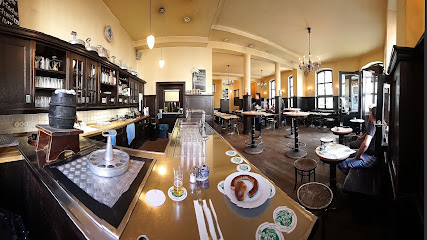
Brauhaus Sünner im Walfisch
Discover Brauhaus Sünner im Walfisch: A charming brewpub in Cologne offering authentic German beers and delicious traditional cuisine.
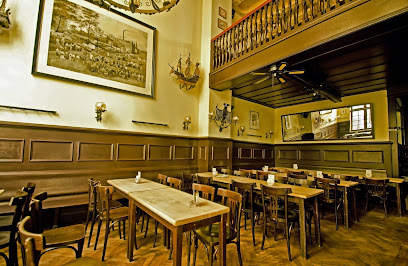
RheinZeit
Discover the essence of German cuisine at RheinZeit in Cologne – where tradition meets taste in every delightful dish.
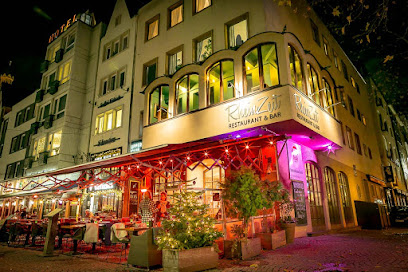
Hänneschen und die Pfeffermühle
Discover authentic German dining at Hänneschen und die Pfeffermühle in Cologne—where tradition meets flavor in every dish.
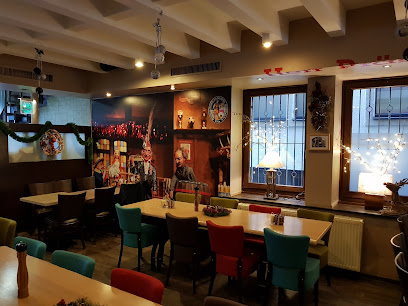
Ristorante-Pizzeria Il Valentino
Experience authentic Italian cuisine at Ristorante-Pizzeria Il Valentino in Cologne with delicious pizzas and traditional dishes served in a cozy atmosphere.
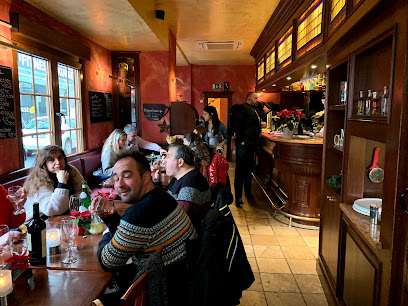
Oma's Küche
Experience authentic German cuisine at Oma's Küche in Cologne - where tradition meets taste in every dish.
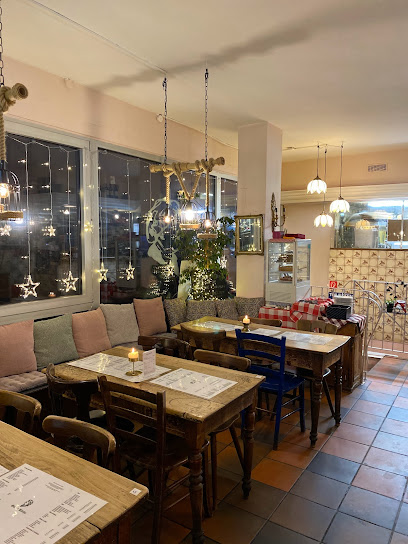
Markets, malls and hidden boutiques
Köln Arcaden
Explore Köln Arcaden, a premier shopping mall in Cologne offering diverse retail, dining, and entertainment experiences for every traveler.
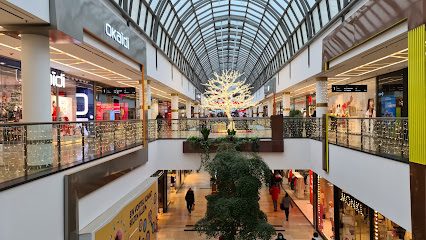
NEUMARKT Galerie Köln
Discover the NEUMARKT Galerie: Cologne's premier shopping destination, blending retail, dining, and culture in the heart of the city.
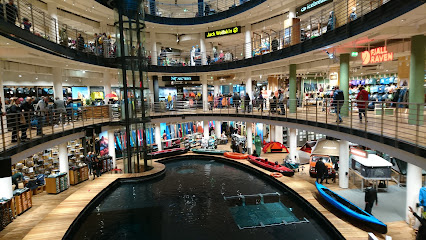
GALERIA Kaufhof
Dive into a shopping haven at GALERIA Kaufhof, Cologne's premier department store, featuring a diverse range of products in the heart of the city.
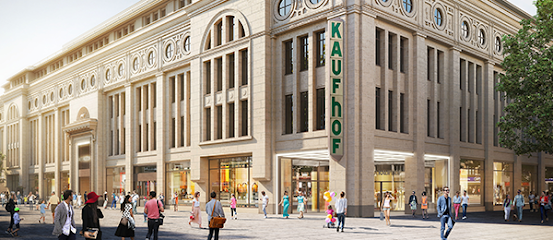
Rhein-Center Köln
Experience the vibrant shopping scene at Rhein-Center Köln, featuring a diverse array of stores, eateries, and unique finds in the heart of Cologne.
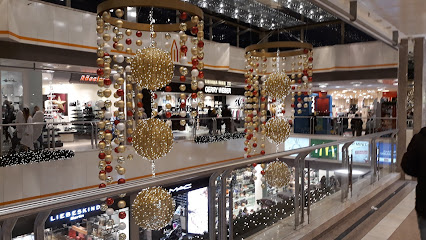
Globetrotter Cologne
Discover the ultimate outdoor haven at Globetrotter Cologne with a vast selection of camping gear, clothing, and expert advice for your adventures.
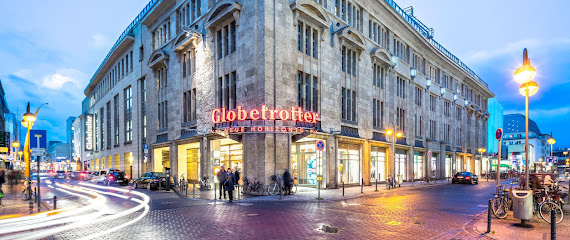
Quincy
Explore Quincy in Cologne - a shopper's paradise featuring diverse stores and delightful dining options in a vibrant atmosphere.
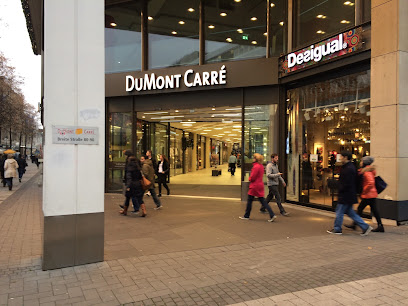
Opern Passagen
Explore the dynamic shopping experience at Opern Passagen, Cologne's premier shopping destination with diverse shops and delightful dining options.
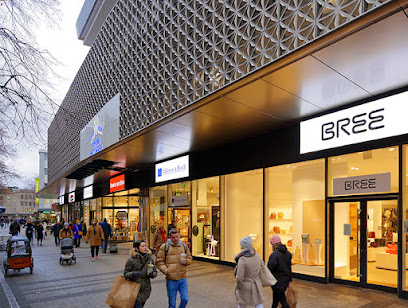
Elbenwald
Explore the enchanting Elbenwald gift shop in Cologne, where fantasy meets shopping with clothing, toys, and unique gifts for all ages.
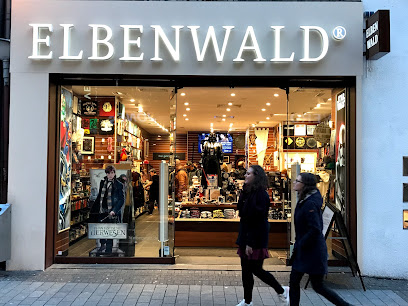
Neumarkt Passage
Explore Neumarkt Passage, Cologne's vibrant shopping mall with over 90 stores, dining options, and a lively atmosphere in the heart of the city.
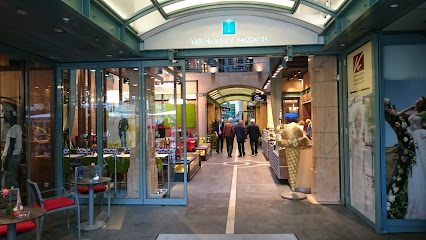
UNIQLO Köln
Explore stylish and affordable fashion at UNIQLO Köln, where contemporary design meets comfort in the heart of Cologne.
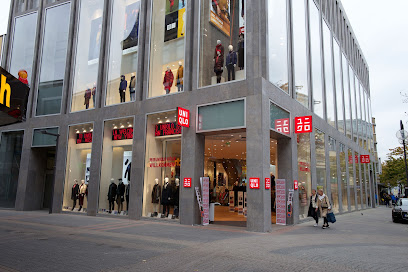
Manufactum Warenhaus
Explore the charm of Cologne at Manufactum Warenhaus, where quality gifts, clothing, and home goods await every discerning traveler.
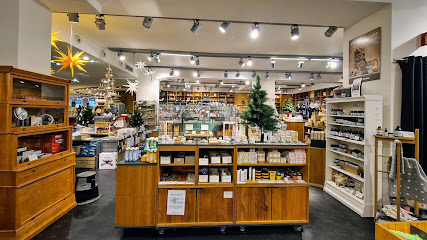
LOUIS VUITTON Cologne Store
Explore the luxury of Louis Vuitton in Cologne, featuring exquisite leather goods and fashion accessories in a stunning retail environment.
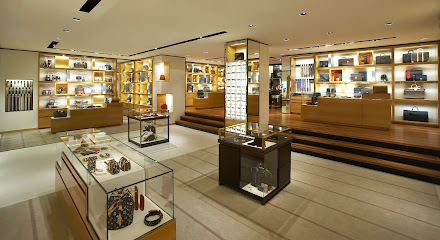
Urban Outfitters
Discover Urban Outfitters in Cologne, a trendy haven for unique clothing, stylish home decor, and eclectic gifts that celebrate urban culture.
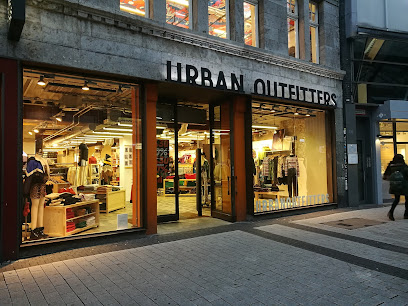
MUJI Cologne Store
Explore the MUJI Cologne Store for a unique selection of minimalist products that blend functionality with style, right in the heart of the city.
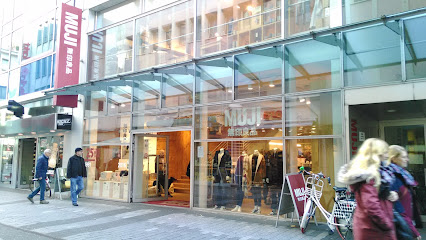
APROPOS The Concept Store
Explore APROPOS The Concept Store in Cologne for a unique shopping experience featuring stylish clothing, cosmetics, and fragrances for all tastes.
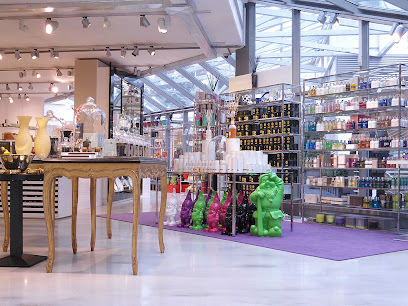
Essential bars & hidden hideouts
Papa Joe's Jazz Bar
Discover the heartbeat of Cologne's jazz scene at Papa Joe's Jazz Bar, where live music and a cozy atmosphere create unforgettable nights.
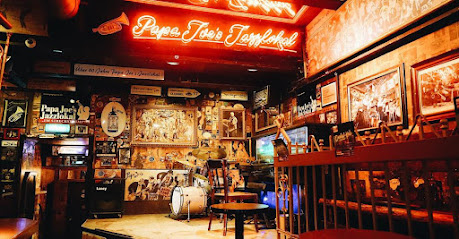
The Corkonian Irish pub
Experience authentic Irish culture at The Corkonian, an Irish pub in Cologne offering hearty food, a vast drink selection, and a lively atmosphere.
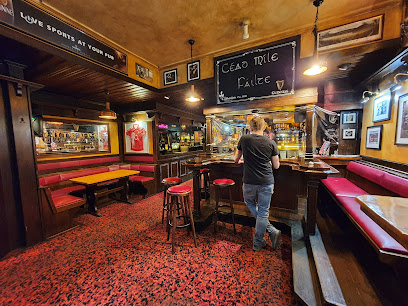
Little Link
Explore the vibrant ambiance of Little Link in Cologne, offering exquisite cocktails and gourmet sandwiches for an unforgettable night out.
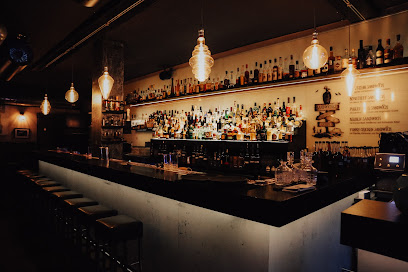
Seiberts - Classic Bar & Liquid Kitchen
Discover the art of mixology at Seiberts, Cologne's premier cocktail bar offering an exquisite range of drinks and a vibrant atmosphere.
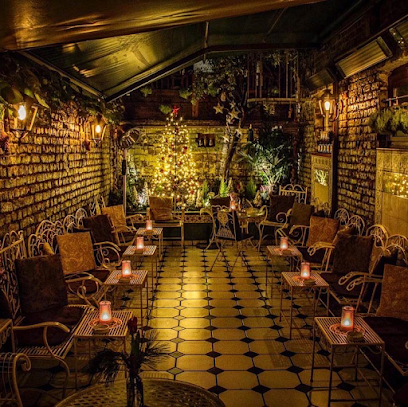
The Copper Pot - Köln
Discover The Copper Pot, Cologne's vibrant Irish pub offering live music, signature cocktails, and a cozy atmosphere for unforgettable nights.
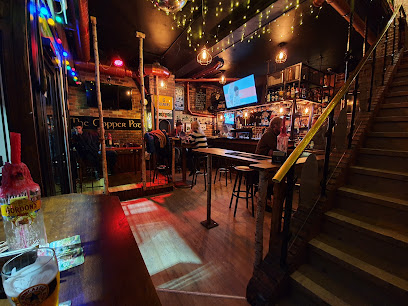
Monkey Bar
Experience the vibrant nightlife of Cologne at Monkey Bar, where stunning views and exquisite cocktails await every visitor.
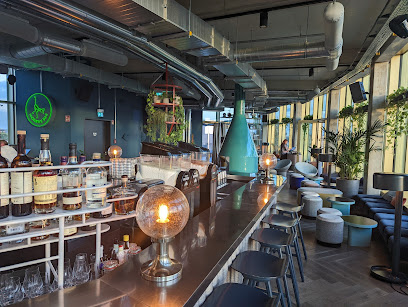
Iron Cocktail Lounge
Discover the Iron Cocktail Lounge in Cologne, where creative cocktails and vibrant nightlife come together for an unforgettable experience.
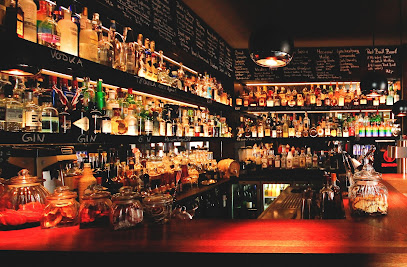
Toddy Tapper - Köln
Indulge in unique cocktails at Toddy Tapper, a top cocktail bar in Cologne, renowned for its fresh ingredients and vibrant atmosphere.
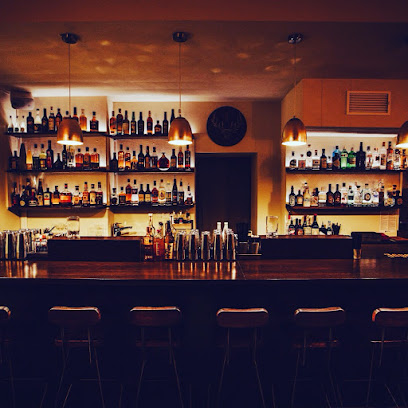
Spirits
Discover Spirits, Cologne's premier cocktail bar offering inventive drinks and a vibrant gastropub atmosphere for an unforgettable night out.
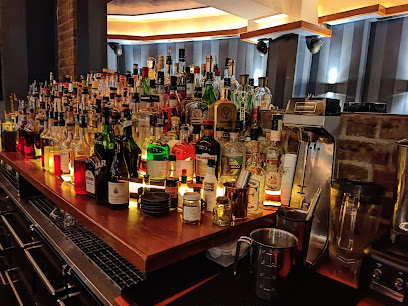
die kunstbar
Discover Die Kunstbar in Cologne: A vibrant bar blending art, music, and delicious drinks in the heart of the city’s nightlife.
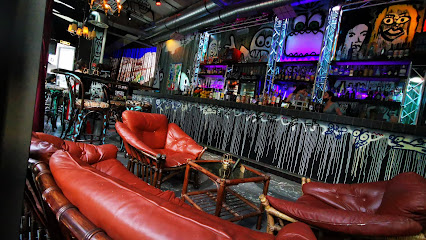
ONA MOR Bar - Köln
Discover the essence of nightlife at ONA MOR Bar in Cologne, where creative cocktails and vibrant atmosphere await every visitor.
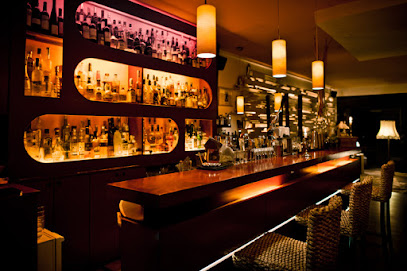
Woods
Discover Woods, a trendy cocktail bar in Cologne, where cozy ambiance meets innovative drinks in the heart of the city's vibrant nightlife.
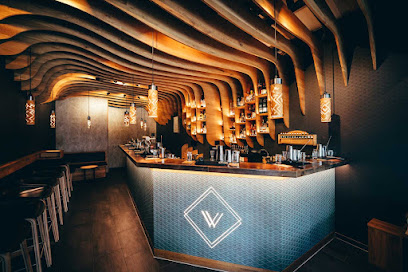
Suderman
Discover Suderman, Cologne's premier cocktail bar, where expertly crafted drinks and a chic ambiance create unforgettable nightlife experiences.
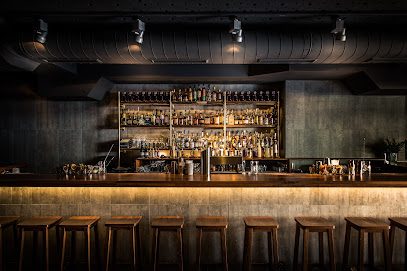
Monkeys Cocktail Culture
Discover the art of mixology at Monkeys Cocktail Culture, Cologne's vibrant cocktail bar renowned for its signature drinks and lively atmosphere.
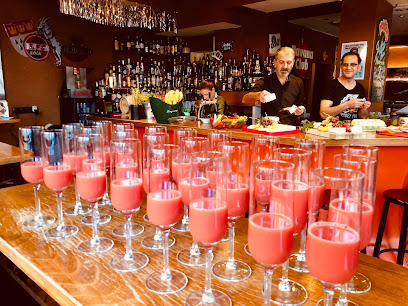
Local Phrases
-
- HelloHallo
[hah-loh] - GoodbyeAuf Wiedersehen
[owf vee-der-zay-en] - YesJa
[yah] - NoNein
[nine] - Please/You're welcomeBitte
[bit-teh] - Thank youDanke
[dahn-keh] - Excuse me/SorryEntschuldigung
[ent-shool-dee-goong] - How are you?Wie geht es Ihnen?
[vee gayt es een-en] - Fine. And you?Gut. Und Ihnen?
[goot oont een-en] - Do you speak English?Sprechen Sie Englisch?
[shpre-khen zee eng-leesh] - I don't understandIch verstehe nicht
[ikh fer-shtay-eh nikht]
- HelloHallo
-
- I'd like to see the menu, pleaseIch hätte gerne die Speisekarte, bitte
[ikh het-eh gehr-neh dee shpay-zeh-kahr-teh, bit-teh] - I don't eat meatIch esse kein Fleisch
[ikh ess-eh kine fleysh] - Cheers!Prost!
[prohst] - I would like to pay, pleaseIch möchte bitte bezahlen
[ikh muhkh-teh bit-teh beh-tsah-len]
- I'd like to see the menu, pleaseIch hätte gerne die Speisekarte, bitte
-
- Help!Hilfe!
[hil-feh] - Go away!Geh weg!
[geh vehg] - Call the Police!Rufen Sie die Polizei!
[roo-fen zee dee poh-lee-tsay] - Call a doctor!Rufen Sie einen Arzt!
[roo-fen zee i-nen ahrts] - I'm lostIch habe mich verirrt
[ikh hah-beh meesh feh-rirt] - I'm illMir ist schlecht
[meer ist shlekht]
- Help!Hilfe!
-
- I'd like to buy...Ich möchte kaufen...
[ikh muhkh-teh kow-fen] - I'm just lookingIch schaue nur
[ikh shau-eh noor] - How much is it?Wie viel kostet es?
[vee feel koh-stet es] - That's too expensiveDas ist zu teuer
[dahs ist tsoo toy-er] - Can you lower the price?Können Sie den Preis senken?
[kuh-nen zee den preys zeng-ken]
- I'd like to buy...Ich möchte kaufen...
-
- What time is it?Wie spät ist es?
[vee shpayt ist es] - It's one o'clockEs ist ein Uhr
[es ist iyn oor] - Half past (10)Halb zehn
[halb tsayn] - MorningMorgen
[mor-gen] - AfternoonNachmittag
[nahk-mit-tahk] - EveningAbend
[ah-bent] - YesterdayGestern
[geh-stern] - TodayHeute
[hoy-teh] - TomorrowMorgen
[mor-gen] - 1Eins
[iyns] - 2Zwei
[tsvay] - 3Drei
[dry] - 4Vier
[feer] - 5Fünf
[foonf] - 6Sechs
[zeks] - 7Sieben
[zee-ben] - 8Acht
[ahkt] - 9Neun
[noyn] - 10Zehn
[tsayn]
- What time is it?Wie spät ist es?
-
- Where's a/the...?Wo ist ein/der...?
[voh ist iyn/dehr] - What's the address?Was ist die Adresse?
[vahs ist dee ah-dreh-seh] - Can you show me (on the map)?Können Sie mir das zeigen (auf der Karte)?
[kuh-nen zee meer dahs tsee-gen (owf dehr kahr-teh)] - When's the next (bus)?Wann kommt der nächste (Bus)?
[vahn kohmt dehr naykhs-teh (boos)] - A ticket (to ....)Eine Fahrkarte (nach ....)
[i-nuh fahr-kahr-teh (nahkh)]
- Where's a/the...?Wo ist ein/der...?
History of Cologne
-
Cologne, originally known as Colonia Claudia Ara Agrippinensium, was established as a Roman colony in 50 AD. The city was named after Agrippina the Younger, the wife of Emperor Claudius, who was born in the area. It quickly became one of the most important cities in the Roman Empire and served as a major military headquarters and trade center. The remnants of Roman architecture, including the Praetorium and the Roman-Germanic Museum, still offer glimpses into this ancient past.
-
During the Middle Ages, Cologne emerged as a significant hub of commerce and culture in Europe. By the 12th century, it became one of the largest cities in the Holy Roman Empire. The city's strategic location along the Rhine River facilitated extensive trade, making it an essential part of the Hanseatic League. The Great St. Martin Church and the medieval city gates, such as the Hahnen Gate, are testaments to its prosperous medieval period.
-
Construction of the Cologne Cathedral (Kölner Dom) began in 1248 and spanned over 600 years, finally completing in 1880. This UNESCO World Heritage site stands as one of the tallest cathedrals in the world and is a stunning example of Gothic architecture. It's not only an architectural marvel but also a symbol of the city's enduring faith and resilience. The cathedral houses the Shrine of the Three Kings, making it an important pilgrimage site.
-
Founded in 1388, the University of Cologne is one of the oldest universities in Europe. It has played a crucial role in the intellectual and cultural development of the city. The university has been a center of academic excellence, producing numerous notable scholars and contributing significantly to various fields of study. Its historic campus and libraries continue to attract students and researchers from around the world.
-
The 19th century saw Cologne transform into an industrial powerhouse. The advent of the railway system and the expansion of its port facilities revolutionized trade and industry in the city. Factories, breweries, and chemical plants flourished, bringing economic prosperity and significant urban development. This period also saw the growth of the working-class neighborhoods and the establishment of public institutions like the Cologne Zoological Garden, founded in 1860.
-
Cologne suffered extensive damage during World War II, with much of the city destroyed by Allied bombing raids. The post-war period was marked by an extensive reconstruction effort that aimed to restore Cologne's historical landmarks while modernizing its infrastructure. The city's resilience is evident in the meticulous rebuilding of iconic structures like the Cologne Cathedral and the establishment of new cultural institutions, such as the Museum Ludwig, which opened in 1976.
-
One of the most vibrant and beloved traditions in Cologne is its annual carnival, known as 'Fastelovend' or 'Karneval.' This pre-Lenten celebration dates back to medieval times and is characterized by colorful parades, elaborate costumes, and lively street parties. The carnival season officially begins on November 11th at 11:11 AM and culminates in the grand Rosenmontag (Rose Monday) parade. It reflects the city's spirit of joy, community, and cultural heritage.
-
Today, Cologne is a dynamic metropolis known for its rich cultural scene, innovative industries, and international trade fairs. The city hosts events like the Art Cologne, the world's oldest art fair, and Gamescom, the largest gaming event in Europe. Its diverse population contributes to a vibrant multicultural atmosphere. Landmarks such as the Cologne Opera House, the Museum of Applied Arts, and the bustling shopping streets of Schildergasse and Hohe Straße highlight Cologne's blend of tradition and modernity.
Cologne Essentials
-
Cologne is well-connected by air, rail, and road. Cologne Bonn Airport (CGN) is the nearest airport, located about 15 km southeast of the city center. It offers both domestic and international flights. From the airport, you can take a taxi, bus, or the S-Bahn (S13 or S19) to reach the city center. Cologne's main train station (Köln Hauptbahnhof) is a major railway hub with high-speed connections to other German cities and neighboring countries. The city is also accessible via major highways if you're driving.
-
Cologne has an extensive public transportation system, including trams, buses, and trains operated by KVB (Kölner Verkehrs-Betriebe). Tickets can be purchased at vending machines and should be validated before boarding. The city is also bike-friendly, with numerous rental options. Taxis are readily available, and ride-sharing services like Uber operate in the city. For short distances, walking is often the best way to explore.
-
The official currency in Cologne is the Euro (EUR). Credit and debit cards are widely accepted, but it is advisable to carry some cash for small purchases and in areas where card payments may not be accepted. ATMs are plentiful throughout the city. Tipping is customary in restaurants, usually around 5-10% of the bill.
-
Cologne is generally a safe city, but like any major urban area, it's important to stay vigilant. Areas around the main train station and certain parts of the nightlife district can be hotspots for pickpocketing. Avoid poorly lit areas at night and always keep an eye on your belongings. Emergency services can be reached by dialing 112.
-
In case of emergency, dial 112 for immediate assistance. This number connects you to police, fire, and medical emergency services. There are several hospitals and clinics throughout Cologne. Pharmacies (Apotheke) are also widely available for minor health issues and over-the-counter medications. It's advisable to have travel insurance that covers medical emergencies.
-
Fashion: Do dress smart-casual when dining out, but casual attire is fine for sightseeing. Avoid overly revealing clothing, especially in religious sites. Religion: Do respect religious customs and dress modestly when visiting churches. Don't speak loudly or take photos without permission. Public Transport: Do validate your ticket before boarding. Don't put your feet on the seats or play loud music. Greetings: Do greet people with a firm handshake. Don't use first names unless invited to do so. Eating & Drinking: Do try local specialties like Kölsch beer and Himmel un Ääd. Don't clink glasses without making eye contact and saying 'Prost'.
-
To experience Cologne like a local, visit the many vibrant neighborhoods such as Ehrenfeld and the Belgian Quarter. Enjoy a leisurely walk along the Rhine River, especially the Rhine Promenade. Don't miss the local markets like the weekly market at Rudolfplatz, where you can buy fresh produce and local goods. For a unique experience, attend a local event or festival, such as the Cologne Carnival or the Christmas markets.
Nearby Cities to Cologne
-
Things To Do in Bonn
-
Things To Do in Dusseldorf
-
Things To Do in Essen
-
Things To Do in Aachen
-
Things To Do in Koblenz
-
Things To Do in Maastricht
-
Things To Do in Spa
-
Things To Do in Genk
-
Things To Do in Liege
-
Things To Do in Hasselt
-
Things To Do in Eindhoven
-
Things To Do in Clervaux
-
Things To Do in Munster
-
Things To Do in Vianden
-
Things To Do in Durbuy



















